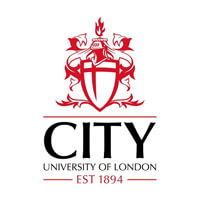fees waived
Mathematics, BSc (Hons)
City, University of London, United Kingdom
Subject ranking
UK / Guardian 2025 38th
UK / QS 2025 39th
UK / CUG 2025 40th
Costs
food & rentS$25.1K / year
Entry requirements
Scholarships
Limited quantity
Information
Code
Intakes
Website (External)
Programmes
Information
Duration
2028
Mathematics forms the backbone of the modern global economy, underpinning advancements in information, science, and technology. It is essential for diverse applications, from managing investments and encrypting data to predicting natural phenomena. A BSc in Mathematics equips graduates with versatile skills, opening doors to careers across industries like banking, technology, and management. Students gain a deep understanding of universal mathematical principles, mastering topics such as calculus, probability, linear algebra, and applied techniques. The programme enhances employability through optional work placements and dedicated career modules, ensuring readiness for professional success.This three-year degree emphasizes applied mathematics, with Year 1 covering foundational subjects like functions and statistics, Year 2 advancing to real analysis and data science, and Year 3 exploring advanced areas such as differential equations and game theory. Assessment includes a mix of examinations (around 70-77% in later years) and coursework, with evaluations like written reports and presentations to foster practical skills. The course meets educational standards for professional accreditation upon further experience.
This three-year BSc Mathematics degree is focused on applied mathematics. As you progress, you will have increasing choice and flexibility about what you choose to study. Year 1 -Functions, Vectors and Calculus (30 credits) -Algebra (15 credits) -Linear Algebra (15 credits) -Introduction to Probability and Statistics (15 credits) -Logic and Set Theory (15 credits) -Number Theory and Cryptography (15 credits) -Introduction to Modelling (15 credits) -Skills, Careers and Employability Analysis for Mathematics students (5 credits) Year 2 -Programming and Data Science for the Professions (15 credits) -Real and Complex Analysis (30 credits) -Vector Calculus (15 credits) -Sequences and Series (15 credits) -Decision Analysis (15 credits) -Applied Mathematics (15 credits) -Numerical Mathematics (15 credits) -Professional Development and Employability (5 credits) -Applications of Probability and Statistics (15 credits) Year 3 -Differential Equations (30 credits) -Group Project (15 credits) -Advanced Complex Analysis (15 credits) -Operational Research (15 credits) -Discrete Mathematics (15 credits) -Game Theory (15 credits) -Dynamical Systems (15 credits) -Introduction to the Mathematics of Fluids (15 credits) -Introduction to Mathematical Physics (15 credits) -Mathematical Processes for Finance (15 credits) -Groups and Symmetry (15 credits) -Mathematical Biology (15 credits) -Probability 2 (15 credits)

